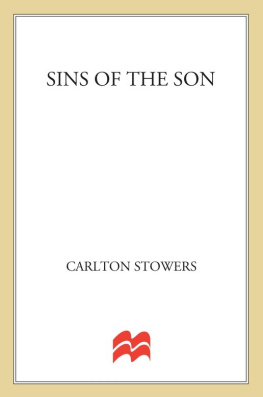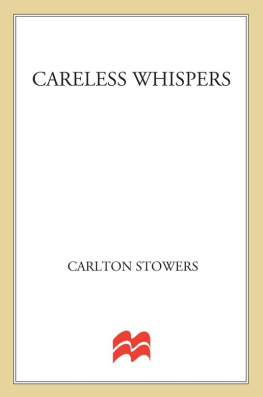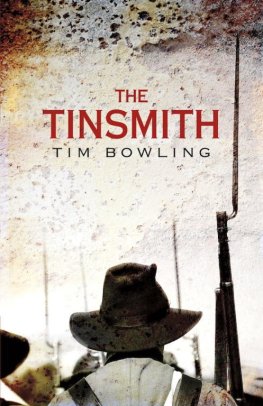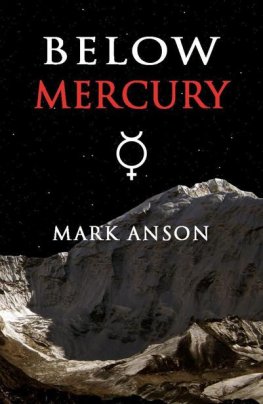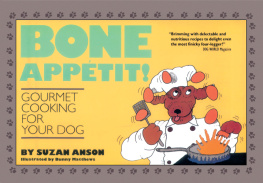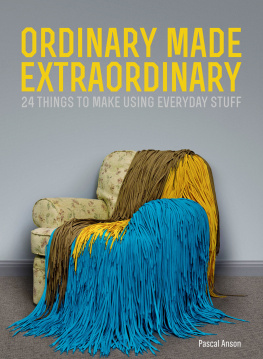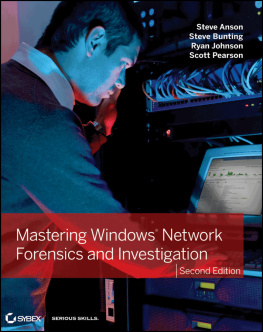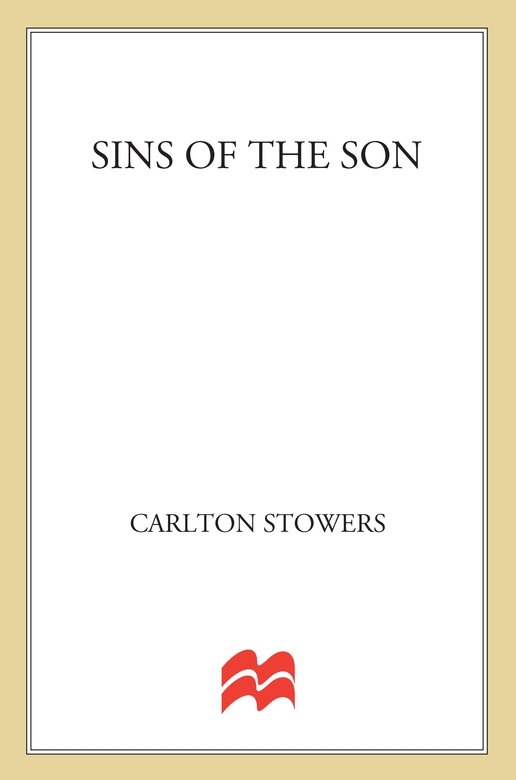THERE ARE THOSE WHO MADE IMPORTANT AND much-appreciated contributions to this book long before I even knew I would write it. Some, for private reasons, wish to remain anonymous. Understand, though, that the omission of their names in no way lessens my gratitude for their help and insight.
In a manner of speaking, this book is as much Ansons as it is mine. Frankly, had he not agreed that it was a worthy endeavor, I would never have undertaken it. So, Son, I thank you first and offer the sincere hope that this exploration benefited you as it did me.
The encouragement of my wife, Pat, was the fuel that drove the project to completion, and it came as no small comfort to know that my son Ashley deemed the idea a good one and blessed it with his support.
For jogging my memory and providing needed help at vital times, Im indebted to the Reverend Dean Pratt, Mike Barclay, Phil Hambrick, Roy Vaughn, Billy Fowler, Dr. Mark Unterburg, Clara Roark, Dr. James Grigson, Shawna Sanders, Sheila Jordan,Sharon Valenti, Beverly Deignan, Ronald Duval, Linda Martin, Brad Lollar, and Arch McColl III.
And, once more, Janet Wilkens Manus took the duties of literary agent above and beyond. Thanks also to Brian DeFiore for the encouragement, enthusiasm, and patience.
I would be remiss if I did not mention the name of colleague Skip Hollandsworth, a fine Texas Monthly writer who, without even knowing it, pushed me toward the decision to do this book. Its the one, he said almost offhandedly one day, that everyone who knows you is waiting for you to write.
Too, be aware that certain names of people mentioned have been changed in the interest of their privacy.
A final thought: As mentioned elsewhere, my work has placed me in the company of a number of people who have been the victims of family tragedies, and Ive watched in admiration the manner in which they dealt with their sorrows and angers and marveled at their remarkable courage and strength of will. Their names are: Nancy Wiser, Rod Montgomery, Jan and Robert Thompson, Richard Franks, Sandra Sadler, Dr. Peter Gailiunas, Henry and Angela Agostinelli, Mark and Paula Donahue, Don and Shirley Moore, David and Sheryl Zanolini, and Mark and Sherry Prine. I thank each for friendship so willingly given and a special brand of strength Ive borrowed from more often than any of them know.
Carlton Stowers
CARLTON STOWERS IS THE AUTHOR OF MORE THAN two dozen nonfiction books, including the Edgar Award-winning Careless Whispers, the Pulitzer Prize-nominated Innocence Lost, and Open Secrets. He has also written two books for children A Hero Named George and Hard Lessons which are being used by elementary schools as part of their drug and gang prevention programs. He and his wife live in Cedar Hill, Texas.
FIVE YEARS HAVE PASSED SINCE THAT EARLY SPRING when I sat in a small, almost empty Dallas courtroom and listened as my son pled guilty to murder. The proceedings were mercifully short, lasting no more than ten minutes. I was relieved to see that the brief flurry of interest the media had shown in the case had disappeared. No reporters stood by, taking notes and forming questions to which I still had no wish to respond.
As he was led away, back to the jail cell he would occupy until he was transferred to prison, Anson stopped briefly and turned to where Pat and I sat, the lone visitors in the courtroom. I could not hear him but was able to read his words. Thanks for being here, he said.
With that a part of our lives ended.
Ansons shattered future now promised nothing more than year after year of prison lifes mind-numbing monotony. How much chess and how many card games could one play, how many books couldone read, how much television watching would it take to pass the time of each endless day?
He would be almost forty-five years old before being again eligible for parole. It was a lifetime away, too far in the distance even to contemplate, so out of reach that it would not even serve as hope to hold to in the dark nights and long days to come.
As Pat and I drove from the courthouse that day, we rode in silence much of the way. He looked so small, she finally said. I know it sounds odd, but all I could think of as he was standing there in front of the judge was how small he looked. It was like looking at someone Id never seen before.
She leaned toward me, gently placing her hand on my shoulder. Are you going to be okay?
I nodded, lacking words to explain to her the strange mixture of thoughts racing through my mind. In a way, Annettes was not the only tragic, untimely death that had occurred. With his horrible crime, Anson too had stepped over into that netherworld where all things good rot and die. The son I had once known, loved, and so long agonized over was gone.
Upon our arrival home we stood in the yard for a time, savoring the fresh air of the real world, inhaling the sweet fragrance of late-blooming honeysuckle that floated on the soft breeze and watched as the neighborhood squirrels played games of chase through the trees.
I was proud of him, I said, thinking aloud.
The puzzled look on my wifes face begged an explanation.
What Anson did today was something hes not been able to do most of his life, something Id lost hope of ever seeing again. He finally took responsibilityfor his actions. There was no lying, no effort to place the blame on someone or something else. He admitted his guilt and accepted his punishment.
There was, I knew, a disturbing irony woven into my observation. Why had it taken the worst of all possible situations to bring out what I judged the best in my son?
Slowly, life began to regain a sense of normalcy. The depression that had haunted me began to dissipate only after I did something Id sworn never to do. Though at first skeptical, I finally sought counseling, sharing locked-away feelings with a total stranger for the first time in my life. The antidepressant he prescribed brought sweet, easy sleep for the first time in weeks.
Pat pulled me to midafternoon movies and long evening walks along the same course wed traveled during the aftermath of her bout with cancer. I could not help but marvel at the quiet reversal of roles. Now it was she who chattered optimistically of days to come, talking of anything and everything except the one thing that weighed so heavily on both our minds. Friendssome, I suspect, secretly prompted by calls from my wifephoned with invitations for lunch. As the Christmas season neared, our home took on a festive warmth beyond any that Pat had ever before created. This, she announced, was the year we finally dressed the front yard and ordered me to the task. Soon, passersby saw the cheerful nighttime twinkle of holiday lights, blinking a signal that all was well in the Stowers house. My dad, a bass fisherman with few peers, phoned to remind me that the big onesalways bit in winter weather and insisted that I visit for a few days.
And I began to work again, trying to focus on the realities of deadlines and bills that demanded payment.
To my surprise a time eventually came when thoughts of Anson were so obscured that several days might pass without my dwelling on his fate. Among the most remarkable gifts God had given man, I was learning, were resiliency and a capability to cope and continue on.
For years I had tried, with precious little success, to do what all loving fathers attempt. But no amount of support or discipline, advice or warning, had diverted Anson from his course. Nothing I did properly elevated his ego or convinced him of the worlds goodness. I had never been able to share with him the treasured gift of well-being.

